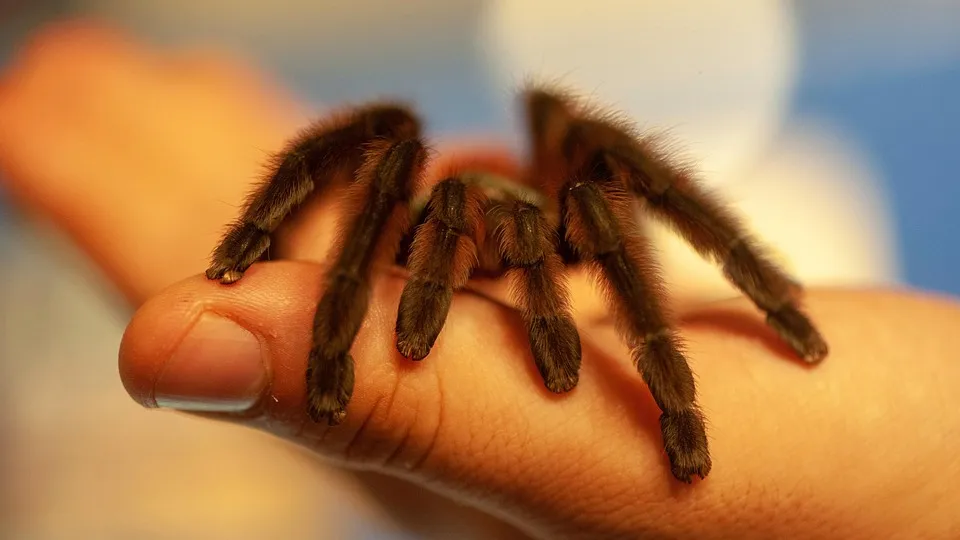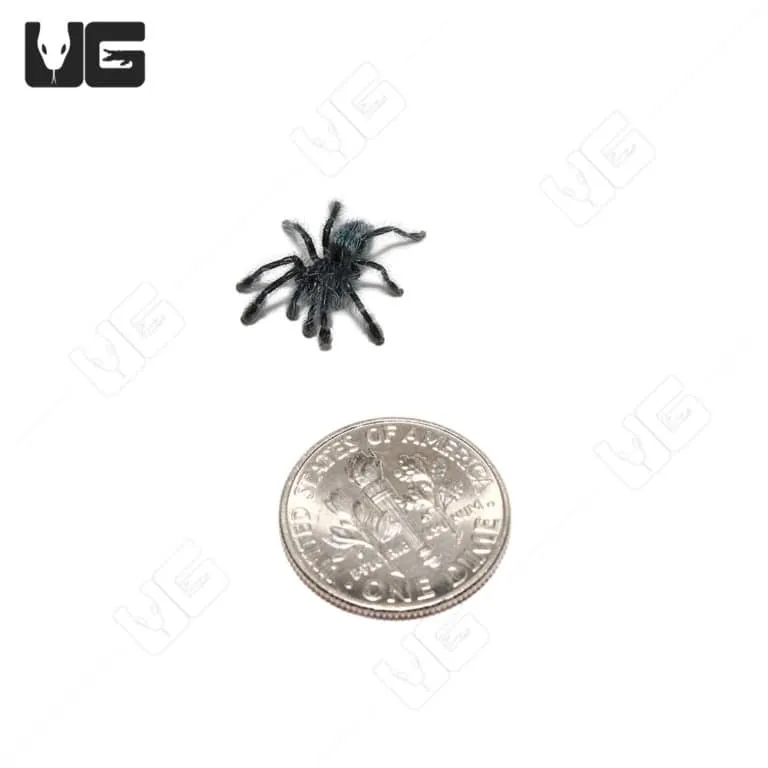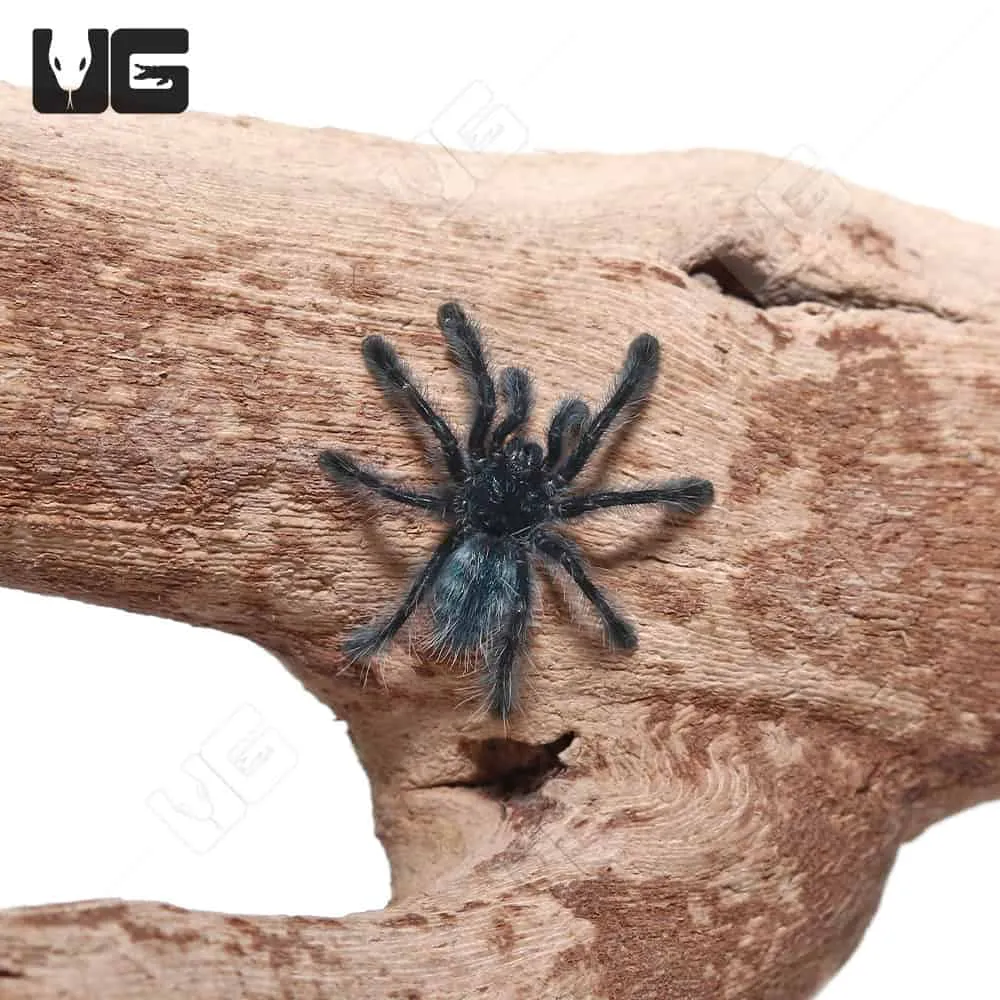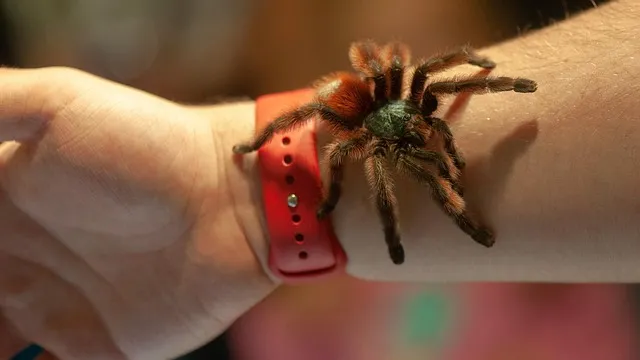What is the Average Antilles Pinktoe Tarantula Lifespan?
The Antilles Pinktoe Tarantula (Caribena versicolor) is a captivating arboreal species, admired for its vibrant colors and relatively docile temperament. When considering bringing one home, understanding their lifespan is crucial. On average, a female Antilles Pinktoe Tarantula can live for an impressive 10 to 12 years, sometimes even longer with optimal care. Males, however, tend to have a significantly shorter lifespan, typically ranging from 3 to 5 years. This disparity is largely due to the biological differences between the sexes, with males often succumbing to the rigors of mating or simply reaching the end of their reproductive cycle. Understanding these lifespan differences is vital for prospective owners to make informed decisions and provide the appropriate care throughout their tarantula’s life.
Factors Influencing Antilles Pinktoe Tarantula Lifespan
Several key factors play a significant role in determining the lifespan of your Antilles Pinktoe Tarantula. Providing the right environment and care can significantly impact their longevity. These factors include environmental conditions, the quality of their diet, and the overall health maintenance practices employed by the keeper. By understanding these influences, owners can create a thriving habitat that supports their tarantula’s health and allows them to live as long as possible. This proactive approach contributes to a happier and healthier life for your eight-legged friend.
Humidity and its Impact

Humidity is a critical element in the well-being of an Antilles Pinktoe Tarantula. These tarantulas thrive in a humid environment, which is crucial for their molting process and overall hydration. Maintaining the right humidity level prevents dehydration and ensures that they shed their exoskeletons successfully. Insufficient humidity can lead to molting problems, potentially shortening their lifespan or causing other health complications. Monitoring humidity with a hygrometer and adjusting ventilation or misting as needed will help ensure the tarantula’s habitat is suitable. Typically, a humidity level of 70-80% is ideal for these arboreal spiders, replicating the environment they would experience in their natural habitat. Regular observation and adjustment are key to providing proper care.
Temperature’s Effect on Lifespan
Temperature is another crucial factor that affects the lifespan of Antilles Pinktoe Tarantulas. These tarantulas are ectothermic, meaning they rely on external sources to regulate their body temperature. Maintaining a consistent temperature within a suitable range is vital for their metabolism, digestion, and overall health. A temperature range of 75-85°F (24-29°C) is generally considered optimal. Extreme temperatures, whether too high or too low, can cause stress and potentially shorten their lifespan. Therefore, regular temperature checks are crucial. Ensure the enclosure is placed away from direct sunlight, drafts, or heat sources that could cause fluctuations. Using a reliable thermometer to monitor the temperature will help ensure your tarantula lives a long and healthy life.
Diet and Nutrition for Longevity
A well-balanced diet is fundamental to an Antilles Pinktoe Tarantula’s long-term health and lifespan. In the wild, they primarily feed on insects, and providing a varied and nutritious diet in captivity is essential. Feed your tarantula appropriately sized insects, such as crickets, roaches, and mealworms, ensuring the prey insects are gut-loaded with nutritious food prior to feeding. The frequency of feeding depends on the tarantula’s size and age, but typically, juveniles are fed more often than adults. Providing a water dish with fresh, clean water is also critical to ensure hydration. Avoid overfeeding, which can lead to obesity and other health problems. Regularly monitor your tarantula’s eating habits and adjust the diet as needed to keep it healthy and active.
Importance of Proper Enclosure

The enclosure plays a central role in the overall health and lifespan of your Antilles Pinktoe Tarantula. As arboreal tarantulas, they require a vertically oriented enclosure that provides ample space for climbing and web-building. The enclosure should be well-ventilated but also capable of maintaining the necessary humidity levels. The size of the enclosure should be appropriate for the tarantula’s size, allowing enough room to move around comfortably. Appropriate substrate, such as coconut fiber or peat moss, helps maintain humidity and provides a natural environment. Regularly clean the enclosure to remove uneaten food, molts, and other waste to prevent the buildup of bacteria and fungi. A safe and stimulating enclosure is not only essential for its physical well-being but also contributes to its mental health, increasing its chances of a longer life.
Understanding Molting and Lifespan
Molting is a natural process for tarantulas, allowing them to shed their old exoskeleton and grow. The frequency of molting decreases as they age. Molting is a vulnerable time for tarantulas, making proper care during this period crucial. Provide appropriate humidity levels, avoid disturbing them, and ensure a stress-free environment. Molting issues, such as difficulty shedding or incomplete molts, can negatively impact their health and potentially shorten their lifespan. Careful observation and maintenance of the ideal conditions are vital during this process to ensure that your tarantula can safely and successfully molt. If any problems arise, seek guidance from an experienced tarantula keeper or a veterinarian specializing in exotic animals.
Signs of a Healthy Antilles Pinktoe Tarantula
Recognizing the signs of a healthy Antilles Pinktoe Tarantula is crucial for ensuring it lives a long and happy life. Healthy tarantulas are typically active, alert, and have a good appetite. They should exhibit vibrant colors and a clean appearance. Healthy tarantulas will also build webs, and their abdomen should be of a healthy size, without signs of emaciation or excessive bloating. Regularly observe your tarantula to understand its normal behavior and quickly identify any potential health issues. Knowing the normal habits of your pet will assist you in spotting any unusual behavior and address health concerns promptly. A well-cared-for tarantula is a happy tarantula!
Common Health Issues and How to Avoid Them

Even with the best care, Antilles Pinktoe Tarantulas can be susceptible to certain health issues. Common problems include dehydration, parasitic infections, and molting difficulties. Dehydration can be avoided by ensuring access to fresh water and maintaining appropriate humidity levels. Parasites can be avoided by acquiring tarantulas from reputable sources and maintaining a clean enclosure. Molting issues can be minimized by providing proper humidity and a stress-free environment. Regularly inspect your tarantula for any signs of illness or injury, such as lethargy, loss of appetite, or unusual behavior. Addressing any health issues promptly can significantly improve the chances of a long and healthy life for your tarantula. Consult with a vet if you are concerned about any of your tarantula’s behaviors.
Tips to Maximize Your Tarantula’s Lifespan
Maximizing the lifespan of your Antilles Pinktoe Tarantula involves a combination of proper care, environmental management, and attentive observation. Maintaining the right temperature and humidity levels is critical, as is providing a balanced diet. Ensure the enclosure is appropriately sized and furnished to provide a safe and stimulating environment. Regularly monitor your tarantula for any signs of illness or stress, and promptly address any concerns. Avoid unnecessary handling, as it can be stressful for the tarantula. By consistently practicing these measures, you can significantly increase the chances of your tarantula living a long and fulfilling life. With diligent care and understanding, you can enjoy the company of your Antilles Pinktoe Tarantula for many years to come.
